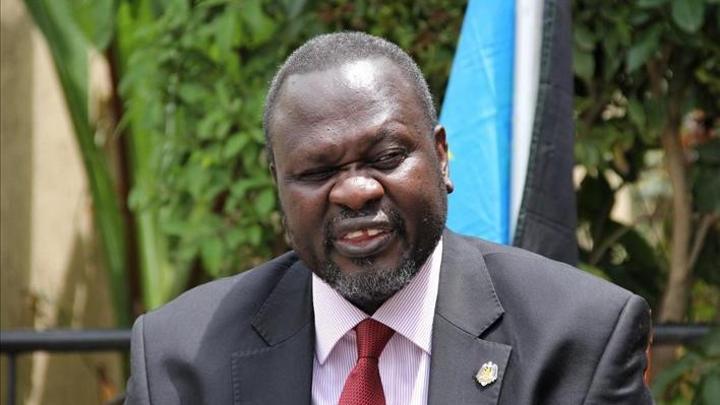Kenyi Ya Kenyi
Africa-Press – South-Sudan. Dr Riek Machar, South Sudan’s First Vice-President and leader of the Sudan People’s Liberation Movement-in-Opposition (SPLM-IO), remains under house arrest in Juba without any formal charges or legal proceedings. His continued detention is not grounded in law or evidence, but rather represents a clear case of political persecution, aimed at sidelining one of the country’s most prominent opposition leaders.
Despite the provisions of South Sudan’s Constitution and the international human rights obligations, the government has imposed heavy restrictions on Dr Machar’s movement, denying him the freedom to travel within or outside the country. Unlike other senior officials, including President Salva Kiir and his deputies, who frequently seek medical treatment abroad, Dr Machar is denied such access, raising serious concerns about the deliberate medical neglect and the erosion of basic rights.
The crackdown extends beyond Dr Machar. His party too faces continuous obstruction in its activities. While the ruling SPLM enjoys free rein to hold rallies and mobilize support, SPLM-IO is barred from conducting campaigns, a move that undermines the principles of political pluralism and free competition ahead of the anticipated elections.
Reports suggest that the regime intends to keep Dr Machar under detention. Observers fear that continued denial of medical care may result in the deterioration of his health—or worse, a tragedy like that of former Egyptian President Mohammed Morsi, who collapsed and died in court after years of mistreatment and medical neglect under President Abdel Fattah el-Sisi’s government.
Dr Machar is feared not because of armed rebellion, but because of his mass popularity and his vision for a united and inclusive South Sudan. His leadership and appeal across communities pose a challenge to the ruling party’s dominance. Instead of competing on a level playing field, the government appears intent on silencing him, fearing that genuine multiparty elections would expose its waning legitimacy.
The current trajectory in Juba bears a striking resemblance to the final years of Romanian dictator Nicolae Ceaușescu’s rule in Romania. Initially celebrated for his independence from Moscow, Ceaușescu evolved into a dictator, building a personality cult, and deploying his secret police to suppress dissent. While his people endured economic hardship and shortages of necessities, he and his wife lived lavishly, constructing monumental projects such as the Palace of the Parliament.
In South Sudan, similar patterns are evident. Allegations of corruption and self-enrichment by the ruling elite persist, while ordinary citizens grapple with deepening poverty, insecurity, and economic collapse. The government continues to rely on foreign mercenaries, particularly from Uganda, and suppresses democratic voices, including that of Dr Machar.
Ceaușescu’s rule collapsed in December 1989 after the military turned against him in the wake of brutal crackdowns on peaceful protests. His downfall remains a cautionary tale for regimes that choose repression over reform.
Kiir’s regime risks leading the country down a similarly destructive path. Using state power to intimidate, silence, and eliminate rivals is unsustainable. History shows that leaders who surround themselves with loyalists, suppress dissent, and reduce governance to personal gain, eventually face political collapse.
Dr Machar is more than just a political rival. He represents a broader movement for inclusion, accountability, and genuine peace. Silencing him will not silence the aspirations of millions of South Sudanese who seek democracy and justice.
South Sudanese, regional actors, and the international community must not turn a blind eye to this situation. The detention of Dr Machar undermines both peace and democracy in the country. If history teaches us anything—from Romania to Egypt—it is that no regime built on repression and fear can endure indefinitely.
South Sudan stands at a decisive moment: it can either embrace political pluralism and reform or repeat the tragic mistakes of authoritarian regimes that collapsed under the weight of their own excesses.
Source: Radio Tamazuj
For More News And Analysis About South-Sudan Follow Africa-Press






